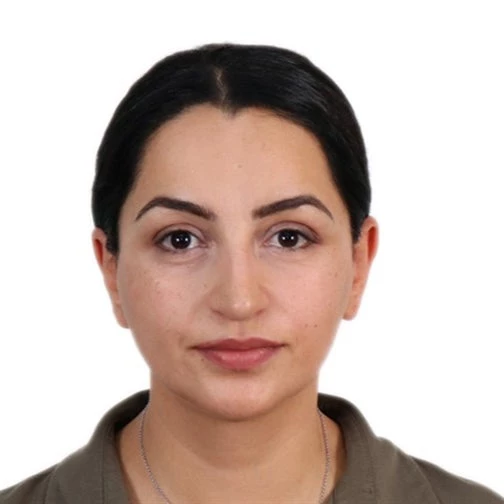 State-of-the-art equipments installed at the customs houses allow full customs control. Drivers crossing the border are not forced into hours of customs checks. Armenia. Photo: Vigen Sargsyan / World Bank
State-of-the-art equipments installed at the customs houses allow full customs control. Drivers crossing the border are not forced into hours of customs checks. Armenia. Photo: Vigen Sargsyan / World Bank
Across the world, governments are stretched in unprecedented ways as they navigate from one crisis to another. The war in Ukraine, inflation, debt, COVID-19, and climate change have strained resources. Governments need to be more responsive to their citizens’ demands, be faster and more agile in implementing policies, and do all of that within a severely restricted fiscal space.
This means governments, development organizations and donors must work together, pooling resources in a scarce and unstable environment and reshape development to face the headwinds and protect future generations. Without addressing governance and institutional issues, countries, and the international community, will struggle to reduce poverty and build shared prosperity for all.
Partnership in Action
In Armenia, the World Bank has joined forces with development partners under the Governance and Institutions Umbrella Program (G&I UP), where the Bank, the Government of Armenia, and the UK’s Foreign, Commonwealth & Development Office (FCDO) are working together to strengthen governance and institutions. The World Bank, through the Governance Global Practice, is committed to working with countries to build capable, efficient, resilient, sustainable, inclusive, and accountable institutions.
While Armenia's economy continues to perform well in the face of ongoing global pressures, structural challenges persist. These include low productivity, low investment rates, and reduced capacity to attract foreign direct investment, to name a few. There are also governance challenges that hamper growth, which include a lack of a modernized public administration system for efficient service delivery, comprehensive regulatory and institutional frameworks, and challenges in the justice sector.
The partnership between FCDO and the World Bank, in consultation with the Armenian government, has prioritized reforms in the areas of GovTech, Customs, and Strategic Planning. These provide three critical pillars to advance governance practices, streamline customs procedures, and promote evidence-based development, ultimately expediting Armenia’s development and enhancing its global competitiveness.
Improving Customs and Tax Administration
One area in which there is strong collaboration between the World Bank, FCDO and the Government of Armenia is in Armenia’s Customs and Tax administration to improve efficiency of revenue mobilization and strengthen service delivery. This work has resulted in improvement of the tax administration such as reorganized risk assessment area and enhanced communication strategy with taxpayers.
The project focuses on capacity building to help Armenia develop a comprehensive customs strategy that enhances compliance capabilities, pioneering the application of innovative inductive methods based on behavioral insights, improving communication with taxpayers, and streamlining border-crossing procedures.
Another significant development that is currently underway with FCDO support is the enhancement of electronic customs clearance systems. These systems significantly reduce border times and improve the trade process for businesses, making Armenia more attractive for international markets and expanding opportunities for local companies to grow their business.
What’s Next?
The partnership is helping Armenia enhance international trade and border management and is playing a vital role to engaging government and political support. Customs procedures are becoming noticeably more efficient with less processing time, economic growth is being stimulated, and Armenia is becoming more attractive for foreign investments. The partnership is a good example of how strategic engagement and investment can significantly promote international trade and openness.
The collaboration will continue as partners move forward with a GovTech project to strengthen transparency, accountability, and access to public services, and a strategic planning project to achieve more optimal performance and delivery. With sustained and strategic engagement, steadfast partnerships can help strengthen governance and institutions in countries like Armenia and contribute to a resilient recovery in the coming years.
About the Governance & Institutions Umbrella Program (G&I UP)
The G&I UP was established in 2022 with the generous support of the Chandler Foundation, the William and Flora Hewlett Foundation, the MacArthur Foundation, and the UK Government’s Foreign, Commonwealth & Development Office (FCDO) as a new partner. The Program supports World Bank client countries to build capable, efficient, open, inclusive, and accountable institutions and improve public sector performance and institutional reform, increase application of digital and technology solutions in the public sector, and enhance transparency and accountability.
Learn more at: www.worldbank.org/giup






Join the Conversation